Biden White House raises concerns about Chinese intimidation ahead of PM visit
Senior Biden officials reject suggestions conflicts in the Middle East and Ukraine have shifted US attention away from the Indo-Pacific region.
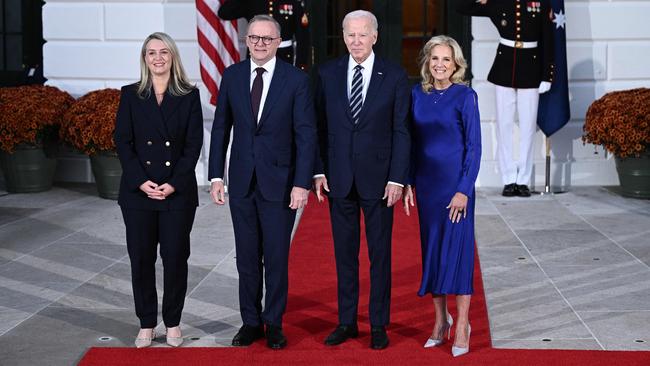
Senior Biden administration officials have raised concerns about Chinese intimidation, coercion and maritime claims in the South China Sea, and warned that the world faces a “great deal of pain” if Beijing cuts off its dominant critical minerals supply chain.
Joe Biden’s National Security Council strategic communications co-ordinator John Kirby on Wednesday (AEDT) rejected suggestions that conflicts in the Middle East and Ukraine had shifted their focus away from the Indo-Pacific region.
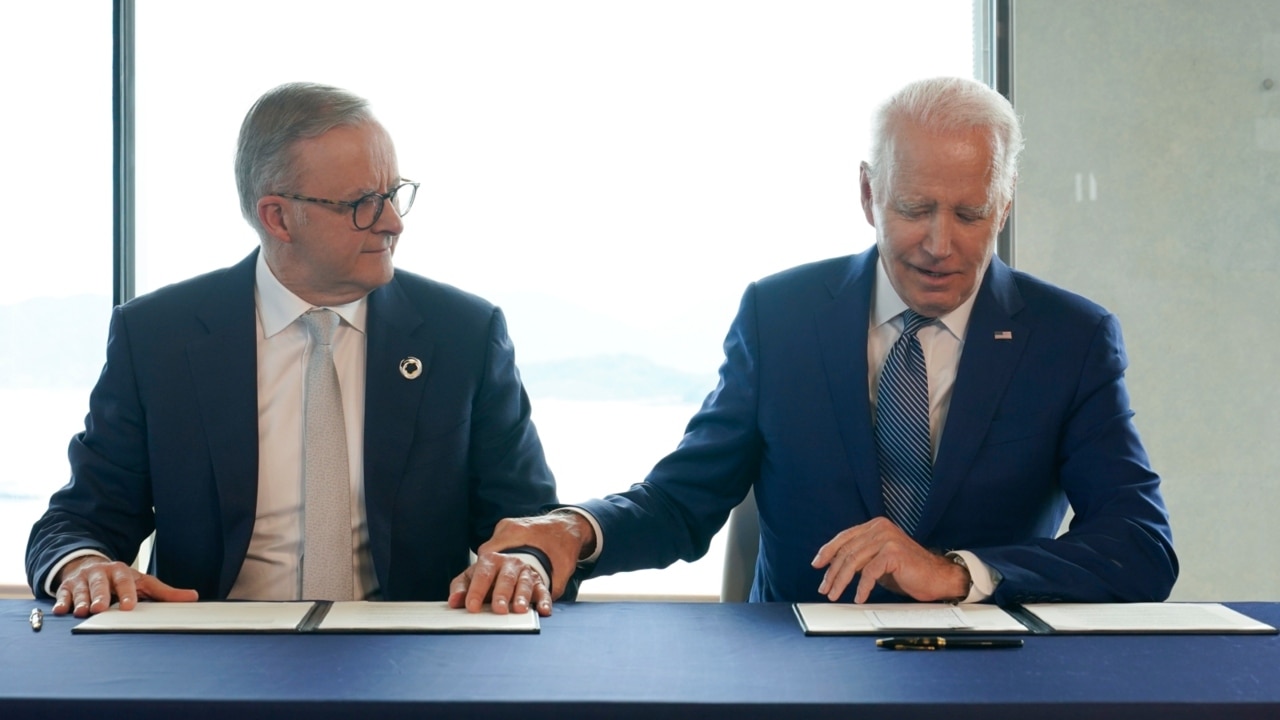
Ahead of Anthony Albanese travelling to Beijing on November 4 for meetings with Chinese President Xi Jinping and Premier Li Qiang, Mr Kirby said “President Biden believes it is important that we keep lines of communication open with China”.
“We view China as a strategic competitor. It’s a competition that we need to succeed in. That means being able to co-operate where we can, communicate where we must, and obviously, as appropriate, work to counter some of the (People’s Republic of China) PRC’s intimidation, coercion, excessive maritime claims,” Mr Kirby said.
“We’re taking a holistic view of this relationship. More open lines of communication with China is a good thing. As a matter of fact, later this week Wang Yi (Chinese Foreign Minister) is coming to (Washington) and he will meet with the Secretary of State (Antony Blinken).”

Mr Kirby said the Biden administration’s focus on the Indo-Pacific region remains “right at the top of the list”.
“I’ve heard this speculation that because we’re so fixated on supporting Ukraine. And now of course, we’re deeply involved in supporting Israel that somehow we’re gonna lose sight, or we’re gonna lose focus on the Indo-Pacific. And I just gotta tell you, from my perspective, I just don’t see it. Our Indo-Pacific partners, and that includes Australia, are also invested in some of these same conflicts around the world. We’re all focused on other things. Economically it’s a huge driver of the global economy. And then you have the acute security challenges,” he said.
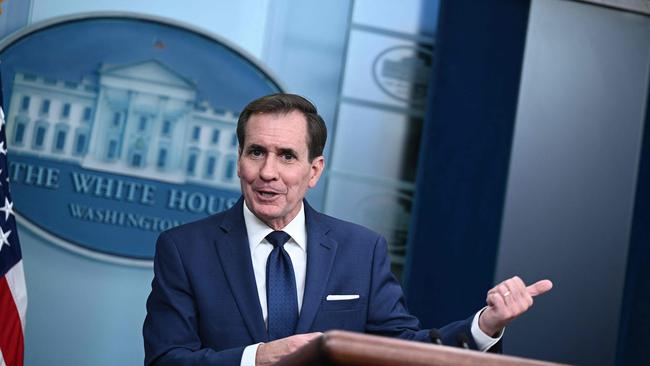
Ahead of Mr Biden hosting Mr Albanese for an official White House state visit on Thursday (AEDT), Mr Kirby said new deals had been struck during the Prime Minister’s visit including a new space agreement allowing US companies to launch rockets into space from Australia and building closer ties between Australian and US First Nations peoples.
At a critical minerals and industry roundtable in Washington, attended by top Australian and US critical minerals and rare earths company chiefs, US Secretary of Commerce Gina Raimondo warned that China “has a headstart”.
Ms Raimondo said countries like the US and Australia had “allowed … ourselves to become vulnerable by being overly dependent on one or two countries or companies around the world and as a result, extremely vulnerable to the harm that comes from these supply chain disruptions”.
“China has a headstart. And that means we have to work a little harder and a little faster. They have the technology and sustained investment over a long period of time, particularly in midstream processing and refining to dominate the market for critical minerals,” Ms Raimondo said.
“And we all know, if China were to point that new direction unfavourable to us, it can cause a great deal of pain, very quickly. And so, we have a job to make sure that doesn’t happen by drawing closer to one another and becoming less vulnerable.
“I’d say most troublingly, they’ve shown a willingness to employ export restrictions on critical minerals as a retaliatory measure. We’ve seen what’s happening with germanium and gallium and most recently, graphite.”
Ms Raimondo, who made the remarks sitting alongside Mr Albanese and Resources Minister Madeleine King, said “the last few years have really been a massive global wake-up call to all of us around the vulnerabilities of our supply chains”.
“First with COVID, which overnight, massively disrupted our supply chains. Then, of course, the conflict in Ukraine, more disruption. And of course, what we see from non-market actors like China,” she said.
“As we race towards a clean energy future, as we race towards a more stable supply chain, there’s a moment for us, US and Australia, to partner as it relates to critical minerals to our mutual benefit.”

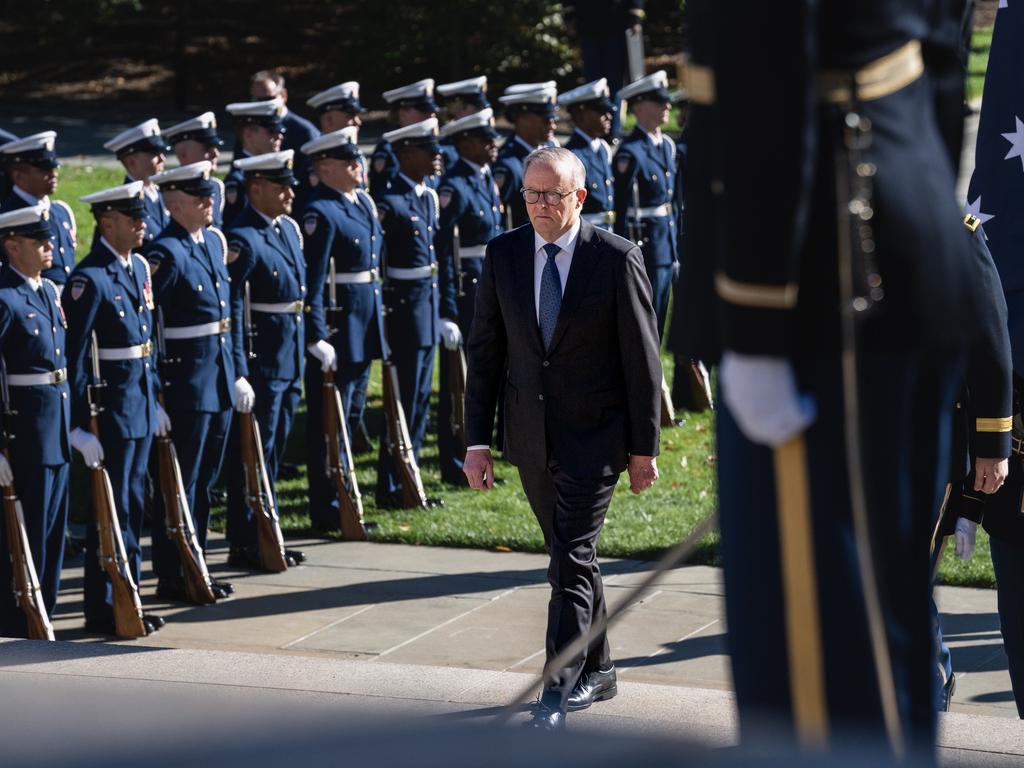

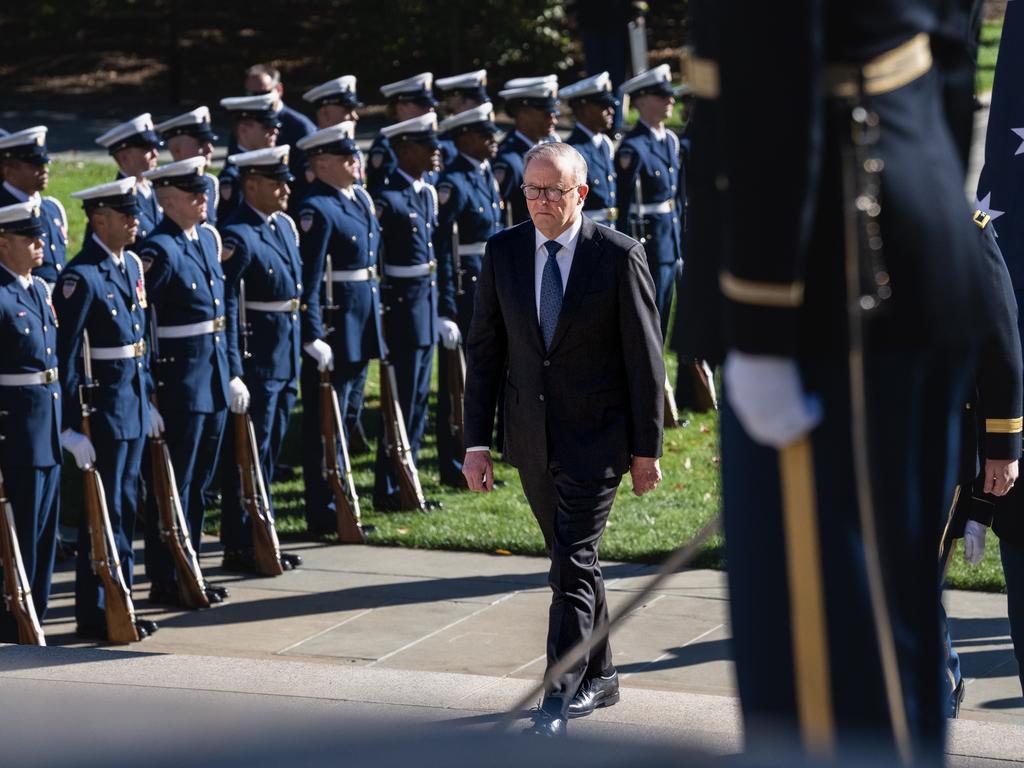


To join the conversation, please log in. Don't have an account? Register
Join the conversation, you are commenting as Logout